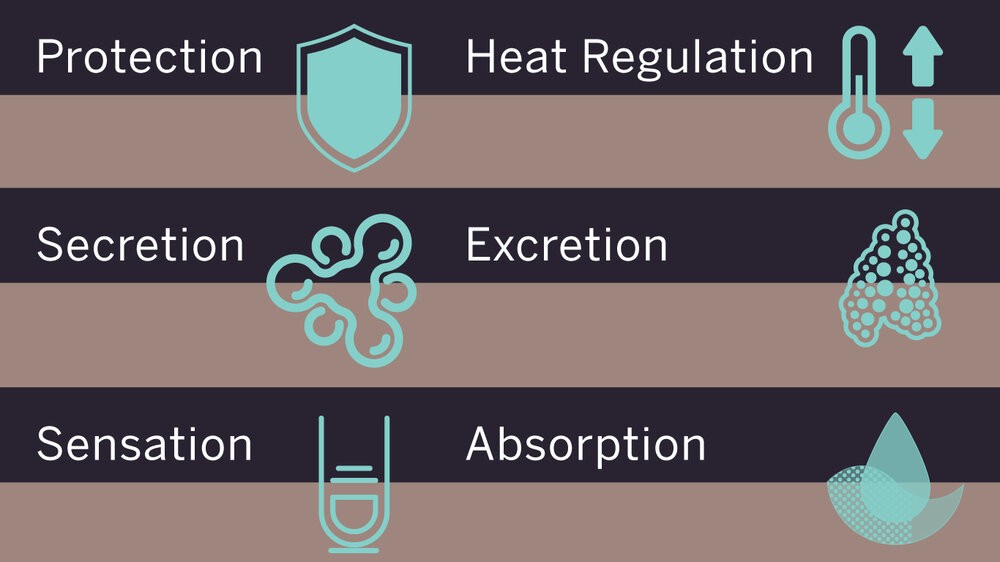The FunctIons oF the skIn

As the body’s largest organ, the skin performs a series of key functions resulting from multiple chemical and physical reactions that take place within it. The skin is a barrier, protecting the body from external ele-ments, injury, and oxidation. It helps maintain a constant body temper-ature through the regulation of moisture loss thereby helping the body adapt to different ambient temperatures and atmospheric conditions. It gathers sensory information and plays an active role in the immune sys-tem, protecting the body from disease. In order to perform all of these functions—protective, metabolic, sensory, and immunological—the skin must maintain its own auto-repairing capacities and functional integrity.
The Skin and Cosmetics

How we treat our skin is part of living a healthy life. The skin is the body’s largest organ. It has been called the body’s armor because it keeps all the organs and muscles safe from the elements outside the body that can cause harm—like the sun’s rays, bacteria, insects, and irritating chemicals. In addition, the skin helps in regulating a number of the body’s functions, including temperature and eliminating toxic chemicals. Its most important role by far, though, is to keep the body’s water from evaporating. When we are born, 90 percent of our body is made up of water; as we age it reduces to 70 percent and might even drop as low as 50 percent in our later years. Without healthy, intact skin covering our body we would die.